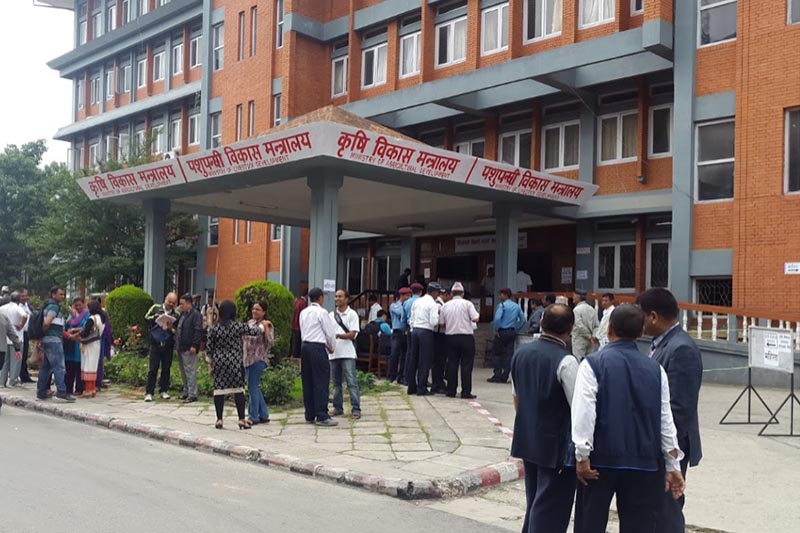Govt’s failure to ensure timely fertiliser to hit paddy yield
KATHMANDU, AUGUST 14
The government has not been able to ensure smooth supply of fertiliser and that could dash farmers’ hope of a good yield as paddy plantation was completed in time this year.
Earlier, the Ministry of Agriculture and Livestock Development had promised farmers that it would distribute fertiliser in time, but it has not been able to keep its word since imports were affected due to the coronavirus pandemic, according to government officials.
However, this is a chronic problem, as farmers have to struggle to get sufficient amount of fertiliser for their crops every year.
Paddy, which is a staple crop, accounts for one-fifth of total agricultural GDP of the country. While the agriculture sector accounts for around one-third of the country’s gross domestic product, paddy accounts for more than 50 per cent of the total agriculture production.
This implies that availability of fertiliser could have limited the impact of the COVID-19 pandemic on country’s economy.
“We had reminded MoALD about fertiliser before we started plantation. Back then, the ministry had said it had sufficient stock of fertiliser and would import more for it to be delivered by the time plantation was completed,” said Navaraj Basnet, president of National Farmers’ Group Federation.
The ministry has handed over the responsibility of importing and distributing fertilisers to Agriculture Inputs Company and Salt Trading Corporation.
“Both the organisations had said they would provide fertiliser by the end of June, but they could not import it,” he said, adding, “After that they again said that fertiliser would be distributed by the end of July, but it is mid-August and there is no sign of us getting fertiliser.”
The timely plantation and favourable monsoon will have no meaning if farmers are unable to spray fertiliser on the paddy for its proper growth, according to Basnet.
“COVID-19 is just another excuse for the government, since shortage of fertiliser recurs every year,” he said, alleging that farmers are not getting fertilisers because of the irresponsibility of the government rather than the pandemic.
Meanwhile, NFGF has also submitted a memorandum to the federal and local governments requesting authorities to arrange fertiliser as soon as possible.
MoALD has committed to making fertiliser available immediately, Basnet added.
Each year, the country needs around six lakh tonnes of fertiliser and Nepal has to import it from India. But the Indian market has been badly affected by the COVID-19 pandemic and factories there are not operating properly. Moreover, import/export to Nepal has also not been eased yet.
Because of all this, fertiliser import has been affected, stated MoALD.
“Production in India has been hit. However, the ministry is doing its level best to import and distribute fertiliser as soon as possible,” said Hari Bahadur KC, spokesperson for MoALD.
For the current fiscal year, the government has allocated a total of Rs 11 billion to import chemical fertiliser.
A version of this article appears in e-paper on August 15, 2020, of The Himalayan Times.






